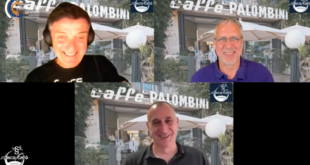
Washington, DC, 7 September 2020. – The Center for Strategic & International Studies (CSIS) in Washington, DC, presented last week a comprehensive report on key governance issues in space. The research report conducted by CSIS’ Aerospace Security Project focused on space sustainability and debris mitigation, rendezvous and proximity operations, and insurance requirements for private and public space missions.
“The best developed of these areas is space sustainability and debris mitigation efforts,” the think tank concludes, but “without norms of behavior or debris removal missions, the space environment may be permanently damaged”. Despite international mechanisms, national policies and industry efforts, “few international standards or norms exist”, CSIS says, and the “few that are in place – such as the commonly practiced 25-year deorbit norm – are out of date”. CSIS cites concerns that “without dedicated international action”, a debris-creating event and chain reaction – the so-called Kessler syndrome – could occur one day and disrupt the global space economy and services.
The second issue covered by the report is rendezvous and proximity operations, in other words in-orbit maneuvers that bring one satellite closer to another one. “(T)here are little to no agreed-upon definitions of what constitutes a safe interaction between satellites on orbit,” CSIS says. “(N)ational and international discussions about rendezvous and proximity operations are either non-existent or at initial stages”. The recent discussion about Russia’s alleged anti-satellite weapon tests in space could be seen in this context.
The third element the report addresses are policies and perspectives of space insurance. While there are “minimal national policies requiring any sort of insurance – especially once the satellite is out of the Earth’s atmosphere”, CSIS says, “for space insurers, the crowded space domain is making insuring satellites riskier and less profitable”. “Until significant movement on cleaning and preserving the space domain occurs on an international level, space insurers may put such high premiums on coverage that companies cannot afford to buy insurance.”
 SpaceWatch.Global An independent perspective on space
SpaceWatch.Global An independent perspective on space




